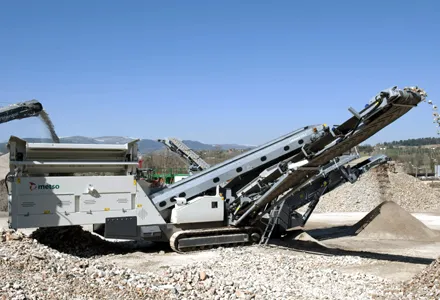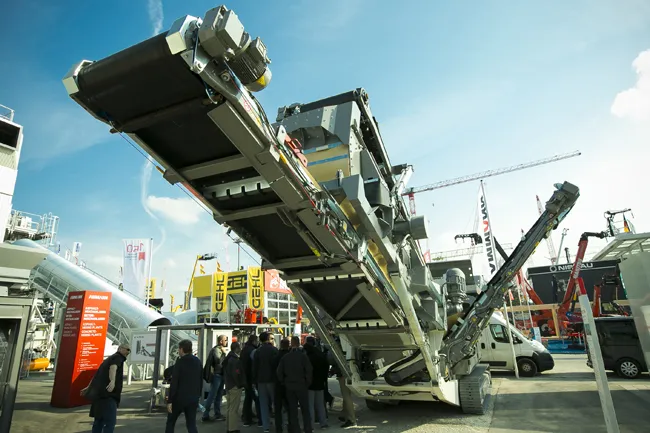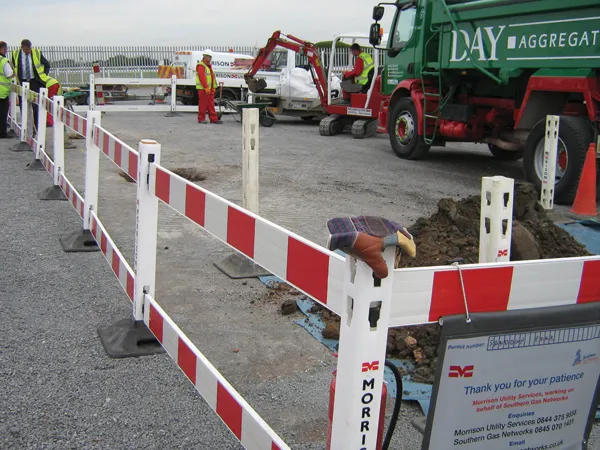A London-based construction material recycling centre says its decision to use a pair of Max X Tract Density Separators is helping them cash in on perceived waste. The 777 Recycling Centre is using the separators supplied by Cheshire-based Dig A Crusher at its state-of-the-art site just outside Croydon. Forming the final stage of 777 Recycling Centre’s resource extraction process, the Waste Systems Ltd-built Max X Tract machines are recovering metals from biomass material while also removing plastics and pa
June 13, 2012
Read time: 2 mins

A London-based construction material recycling centre says its decision to use a pair of Max X Tract Density Separators is helping them cash in on perceived waste.
The 777 Recycling Centre is using the separators supplied by Cheshire-based Dig A Crusher at its state-of-the-art site just outside Croydon.
Forming the final stage of 777 Recycling Centre’s resource extraction process, the Waste Systems Ltd-built Max X Tract machines are recovering metals from biomass material while also removing plastics and paper from the same source.
More than 4,000tonnes of construction, demolition and skip waste arrives on site every week and is converted into a wide variety of products including fuel, ferrous and non-ferrous metals and plastics for onward processing, and a range of crushed concrete and aggregate products for reintroduction to the UK construction industry.
Weighing just nine tonnes, the Max X Tract uses a one-pass system to process up to 150tonnes/hour, depending upon feed material.
At the 777 Recycling Centre, the first Max X Tract unit receives material from a trommel via an elevated conveyor. It segregates the light and the heavy materials: the light being destined for RDF applications; with the heavier materials moving on for further processing to the other Max X Tract. Here the final clean-up occurs where wood gets separated from the aggregate, ensuring two high quality end products. The initial exposure of material to a Max X Tract effectively removes any remaining metals from the waste stream.
The 777 Recycling Centre is using the separators supplied by Cheshire-based Dig A Crusher at its state-of-the-art site just outside Croydon.
Forming the final stage of 777 Recycling Centre’s resource extraction process, the Waste Systems Ltd-built Max X Tract machines are recovering metals from biomass material while also removing plastics and paper from the same source.
More than 4,000tonnes of construction, demolition and skip waste arrives on site every week and is converted into a wide variety of products including fuel, ferrous and non-ferrous metals and plastics for onward processing, and a range of crushed concrete and aggregate products for reintroduction to the UK construction industry.
Weighing just nine tonnes, the Max X Tract uses a one-pass system to process up to 150tonnes/hour, depending upon feed material.
At the 777 Recycling Centre, the first Max X Tract unit receives material from a trommel via an elevated conveyor. It segregates the light and the heavy materials: the light being destined for RDF applications; with the heavier materials moving on for further processing to the other Max X Tract. Here the final clean-up occurs where wood gets separated from the aggregate, ensuring two high quality end products. The initial exposure of material to a Max X Tract effectively removes any remaining metals from the waste stream.








